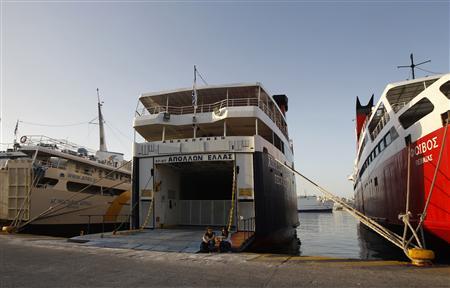ATHENS, (Reuters) – Greek workers walked off the job for the second time in three weeks on Thursday, hoping to show EU leaders meeting in Brussels that a new wave of wage and pension cuts will only worsen their plight after five years of recession.
Streets emptied in central Athens as most business and public sector activity ground to a halt at the start of the 24-hour strike called by the country’s two biggest labour unions, ADEDY and GSEE.
Greece is stuck in its worst downturn since World War Two and must make at least 11.5 billion Euros of cuts to satisfy the “troika” of the European Commission, European Central Bank and IMF, and secure the next tranche of a 130-billion-Euro bailout.
“Just once, the government ought to reject the troika’s absurd demands,” said Yannis Panagopoulos, head of the GSEE private sector union, one of two major unions that represent about 2 million people, or half of Greece’s workforce.
“Agreeing to catastrophic measures means driving society to despair and the consequences as well as the protests will then be indefinite,” he said.
European Union leaders will try to bridge their differences over plans for a banking union at their two-day summit which starts on Thursday but no substantial decisions are expected, reviving concerns about complacency in tackling the debt crisis which exploded three years ago in Greece.
The strike brought much of the country to a standstill. Ships stayed in port, Athens public transport was disrupted and hospitals were working on emergency staff, while public offices, ministries and many shops including bakeries were shut.
Five separate marches later on Thursday are expected to culminate in demonstrations outside parliament, which in the past have ended in clashes between police and protesters. Metal fences were put up outside parliament on the central Syntagma square and about 4,000 policemen were being deployed.
ST

